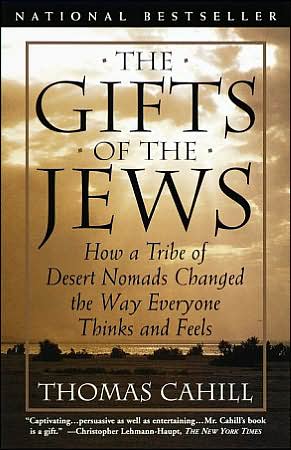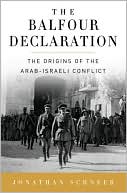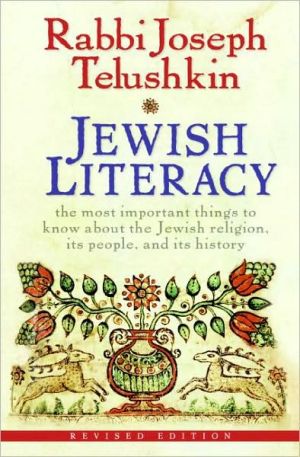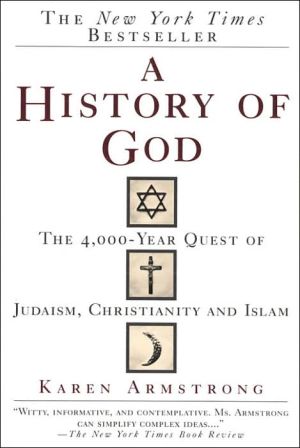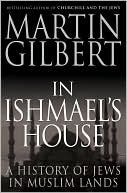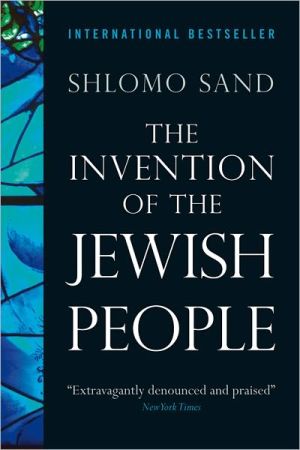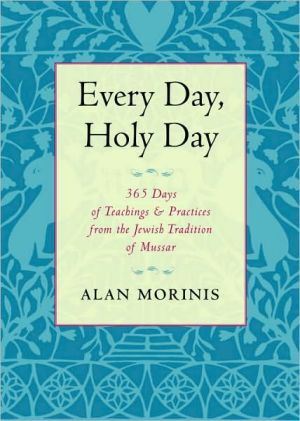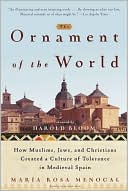The Gifts of the Jews: How a Tribe of Desert Nomads Changed the Way Everyone Thinks and Feels
The author of the runaway bestseller How the Irish Saved Civilization has done it again. In The Gifts of the Jews Thomas Cahill takes us on another enchanting journey into history, once again recreating a time when the actions of a small band of people had repercussions that are still felt today.\ The Gifts of the Jews reveals the critical change that made western civilization possible. Within the matrix of ancient religions and philosophies, life was seen as part of an endless cycle of birth...
Search in google:
The Gifts of the Jews is the most recent exploration of the historical foundations of Western civilization from Thomas Cahill, author of the bestselling How the Irish Saved Civilization. The second book in "The Hinges of History" series, The Gifts of the Jews extends Cahill's scope back to the dawn of recorded history and across a broader geographical plain. The premise is simple but bold: to show how the religious, moral, philosophical, and political systems developed by the Jews -- descendants and followers of Abraham, Moses, Joshua, Saul, and David -- profoundly shaped the world we know today. Concepts as basic as personal freedom and charity derive from their adaptations to and interpretations of their experiences. To anyone with even a basic knowledge of Western history it is clear that Judaism influenced Christianity and Islam. And it is equally clear that these three great religions (or, if you prefer, societies) formed, over centuries, the central tenets of European thought. But to have a historian as skilled at narrative and thematic synthesis as Cahill take a reader back to the beginning of these thoughts and walk through the very first expressions of free will, or a relationship with a singular god greater than the sum of the earth, or an innate responsibility to care for the weak and poor, provides a depth of understanding of the Western tradition more accessible than most scholarship or philosophy permits. Diane Zaga Thomas Cahill places the spiritual journey of biblical-era Jewry firmly in a historical context while simultaneously making it come alive in a way that is almost sensory in its immediacy. —Jewish Journal
The Jews started it all--and by "it" I mean so many of the things we care about, the underlying values that make all of us, Jew and gentile, believer and atheist, tick. Without the Jews, we would see the world through different eyes, hear with different ears, even feel with different feelings. And not only would our sensorium, the screen through which we receive the world, be different: we would think with a different mind, interpret all our experience differently, draw different conclusions from the things that befall us. And we would set a different course for our lives.\ By "we" I mean the usual "we" of late-twentieth century writing: the people of the Western world, whose peculiar but vital mentality has come to infect every culture on earth, so that, in a startlingly precise sense, all humanity is now willy-nilly caught up in this "we." For better or worse, the role of the West in humanity's history is singular. Because of this, the role of the Jews, the inventors of Western culture, is also singular: there is simply no one else remotely like them; theirs is a unique vocation. Indeed, as we shall see, the very idea of vocation, of a personal destiny, is a Jewish idea.\ Our history is replete with examples of those who have refused to see what the Jews are really about, who--through intellectual blindness, racial chauvinism, xenophobia, or just plain evil--have been unable to give this oddball tribe, this raggle-taggle band, this race of wanderers who are the progenitors of the Western world, their due. Indeed, at the end of this bloodiest of centuries, we can all too easily look back on scenes of unthinkable horror perpetrated by those who would do anything rather than give the Jews their due.\ But I must ask my readers to erase from their minds not only the horrors of history--modern, medieval, and ancient--but (so far as one can) the very notion of history itself. More especially, we must erase from our minds all the suppositions on which our world is built--the whole intricate edifice of actions and ideas that are our intellectual and emotional patrimony. We must reimagine ourselves in the form of humanity that lived and moved on this planet before the first word of the Bible was written down, before it was spoken, before it was even dreamed.\ What a bizarre phenomenon the first human mutants must have appeared upon the earth. Like their primate progenitors, they were long-limbed and rangy, but, with unimpressive muscles and without significant fur or claws, confined to the protection of trees, save when they would tentatively essay the floor of the savannah--hoping to obtain food without becoming food. With their small mouths and underdeveloped teeth, their unnaturally large heads (like the heads of primate infants), they were forced back on their wits. Their young remained helpless for years, well past the infancy of other mammals, requiring from their parents long years of vigilance and extensive tutelage in many things. Without planning and forethought, without in fact the development of complex strategies, these mutants could not hope to survive at all.\ But if we make use of what hints remain in the prehistorical and protohistorical "record," we must come to the unexpected conclusion that their inventions and discoveries, made in aid of their survival and prosperity--tools and fire, then agriculture and beasts of burden, then irrigation and the wheel--did not seem to them innovations. These were gifts from beyond the world, somehow part of the Eternal. All evidence points to there having been, in the earliest religious thought, a vision of the cosmos that was profoundly cyclical. The assumptions that early man made about the world were, in all their essentials, little different from the assumptions that later and more sophisticated societies, like Greece and India, would make in a more elaborate manner. As Henri-Charles Puech says of Greek thought in his seminal Man and Time: "No event is unique, nothing is enacted but once . . .; every event has been enacted, is enacted, and will be enacted perpetually; the same individuals have appeared, appear, and will appear at every turn of the circle."\ The Jews were the first people to break out of this circle, to find a new way of thinking and experiencing, a new way of understanding and feeling the world, so much so that it may be said with some justice that theirs is the only new idea that human beings have ever had. But their worldview has become so much a part of us that at this point it might as well have been written into our cells as a genetic code. We find it so impossible to shed--even for a brief experiment-- that it is now the cosmic vision of all other peoples that appears to us exotic and strange.\ The Bible is the record par excellence of the Jewish religious experience, an experience that remains fresh and even shocking when it is read against the myths of other ancient literatures. The word bible comes from the Greek plural form biblia, meaning "books." And though the Bible is rightly considered the book of the Western world--its foundation document--it is actually a collection of books, a various library written almost entirely in Hebrew over the course of a thousand years.\ We have scant evidence concerning the early development of Hebrew, one of a score of Semitic tongues that arose in the Middle East during a period that began sometime before the start of the second millennium B.C.*--how long before we do not know. Some of these tongues, such as Akkadian, found literary expression fairly early, but there is no reliable record of written Hebrew before the tenth century B.C.--that is, till well after the resettlement of the Israelites in Canaan following their escape from Egypt under the leadership of Moses, the greatest of all proto-Jewish figures. This means that the supposedly historical stories of at least the first books of the Bible were preserved originally not as written texts but as oral tradition. So, from the wanderings of Abraham in Canaan through the liberation from Egypt wrought by Moses to the Israelite resettlement of Canaan under Joshua, what we are reading are oral tales, collected and edited for the first (but not the last) time in the tenth century during and after the kingship of David. But the full collection of texts that make up the Bible (short of the Greek New Testament, which would not be appended till the first century of our era) did not exist in its current form till well after the Babylonian Captivity of the Jews--that is, till sometime after 538 B.C. The last books to be taken into the canon of the Hebrew Bible probably belong to the third and second centuries B.C., these being Esther and Ecclesiastes (third century) and Daniel (second century). Some apocryphal books, such as Judith and the Wisdom of Solomon, are as late as the first century.\ To most readers today, the Bible is a confusing hodgepodge; and those who take up the daunting task of reading it from cover to cover seldom maintain their resolve beyond a book or two. Though the Bible is full of literature's two great themes, love and death (as well as its exciting caricatures, sex and violence), it is also full of tedious ritual prescriptions and interminable battles. More than anything, because the Bible is the product of so many hands over so many ages, it is full of confusion for the modern reader who attempts to decode what it might be about.\ But to understand ourselves--and the identity we carry so effortlessly that most "moderns" no longer give any thought to the origins of attitudes we have come to take as natural and self-evident--we must return to this great document, the cornerstone of Western civilization. My purpose is not to write an introduction to the Bible, still less to Judaism, but to discover in this unique culture of the Word some essential thread that runs through it, to uncover in outline the sensibility that undergirds the whole structure, and to identify the still-living sources of our Western heritage for contemporary readers, whatever color of the belief-unbelief spectrum they may inhabit.\ To appreciate the Bible properly, we cannot begin with it. All definitions must limit or set boundaries, must show what the thing-to-be-defined is not. So we begin before the Bible, before the Jews, before Abraham--in the time when reality seemed to be a great circle, closed and predictable in its revolutions. We return to the world of the Wheel.\ *Recently, the designations B.C.E. (before the common era) and C.E. (common era), used originally in Jewish circles to avoid the Christim references contained in the designations B.C. (before Christ) and A.D. (anno dom~n~, in the year of the Lord), have g.uned somewhat wider currency. I use B.C. and A.D. not to cause offense to anyone but because the new designations, still largely unrecognized outside scholarly circles, can unnecessarily disorient the common reader.
Introduction: The Jews Are It1IThe Temple in the Moonlight: The Primeval Religious Experience9IIThe Journey in the Dark: The Unaccountable Innovation51IIIEgypt: From Slavery to Freedom91IVSinai: From Death to Life123VCanaan: From Tribe to Nation165VIBabylon: From Many to One203VIIFrom Then Till Now: The Jews Are Still It243Notes and Sources253The Books of the Hebrew Bible266Chronology271Acknowledgments274Index of Biblical Citations277General Index281
\ From the Publisher"Persuasive as well as entertaining...Mr. Cahill's book [is] a gift."--Christopher Lehmann-Haupt, The New York Times\ "An outstanding and very readable book...highly recommended."--Library Journal\ "A very good read, a dramatically effective, often compelling retelling of the Hebrew Bible."--Charles Gold, Chicago Sun Times\ "This is a valuable book, of interest to everyone, religious or not."\ --Washington Times\ "A highly readable, entrancing journey."\ --San Francisco Chronicle\ \ \ \ \ \ Prager. . .[W]ritten with humor, whimsy, and an engaging sensitivity to literary nuance. But. . .aims for more than entertainment. . . .what is desperately needed is an articulation of Jewish distinctiveness. . . .Cahill. . .misleads those who may be truly seeking to understand where the Jews come from and how, as Jews, they can best carry their traditions forward into the future. \ —Commentary\ \ \ Chicago TribuneHe exalts his ancient subject; their hearts, minds and experienes resonate in hsi compelling contemporary narrative.\ \ \ \ \ Sarah HorowitzThomas Cahill looks at history with the rigor of a scholar but explains it simplywith the skill of a gifted teacher. . .He conveys with a fresh lens a legacy 'so much a part of us' that we scarcely recognize it. —The Jewish Bulletin\ \ \ \ \ Diane ZagaThomas Cahill places the spiritual journey of biblical-era Jewry firmly in a historical context while simultaneously making it come alive in a way that is almost sensory in its immediacy. —Jewish Journal\ \ \ \ \ Library JournalCahill argues that the greatest gifts of the Jews are the linear theory of history (vs. the cyclical theory of other ancients), with its implication that life can get better and avoid decline and the idea of the equality and dignity of each individual that culminated in the declaration that "All men are created equal." Other gifts include the concepts of universal brotherhood, peace, and justice. (LJ 3/15/97) Copyright 1999 Cahners Business Information.\ \ \ \ \ New York Times Book ReviewCharming and poetic... an entirely engaging, delectable voyage into the distant past. . .a small treasure.\ \ \ \ \ Sarah HorowitzThomas Cahill looks at history with the rigor of a scholar but explains it simply, with the skill of a gifted teacher. . .He conveys with a fresh lens a legacy 'so much a part of us' that we scarcely recognize it. -- The Jewish Bulletin\ \ \ \ \ Diane ZagaThomas Cahill places the spiritual journey of biblical-era Jewry firmly in a historical context while simultaneously making it come alive in a way that is almost sensory in its immediacy. -- Jewish Journal\ \ \ \ \ The New York TimesCharming and poetic... an entirely engaging, delectable voyage into the distant past. . .a small treasure.\ \ \ \ \ Los Angeles TimesA lovely tale. . .graceful and instructive.\ \ \ \ \ Prager. . .[W]ritten with humor, whimsy, and an engaging sensitivity to literary nuance. But. . .aims for more than entertainment. . . .what is desperately needed is an articulation of Jewish distinctiveness. . . .Cahill. . .misleads those who may be truly seeking to understand where the Jews come from and how, as Jews, they can best carry their traditions forward into the future. -- Commentary\ \ \ \ \ Kirkus ReviewsShows how the ancient Israelites transformed the idea of religion by gradually introducing monotheism, and equally transformed our sense of time and history. Beginning with Abraham's departure from his Sumerian homeland, the ancient Hebrews broke with the repetitive cyclical image of history assumed by most ancient religions to forge what Cahill terms the 'processive' world view.\ In this perspective, the present and future become more important than the past, for they are open to change, progress, and hope. Cahill also credits the Hebrew bible with bequeathing to Western civilization such seminal ideas as the interior self (e.g. in David's Psalms), the universal commonalities of all peoples, and, more dubiously, a focus on interpersonal relationships (e.g. in the 'Song of Songs').\ He manages to turn many a beautiful phrase while being forthrightly colloquial. Occasionally, however, he overdoes the plain talk, missing more profound dynamics, as in noting that he's willing to give God 'the benefit of the doubt' for commanding Abraham to sacrifice Isaac because 'He had to jump-start this new religion and he didn't always have the best material to work with.' But he occasionally overstates his case—surely the ancient Greeks were as significant an influence on our values and worldview as the ancient Israelites. Nonetheless, in an age crowded with bloated, pedantic tomes, Cahill offers a refreshingly succinct, illuminating, and readable summary of the Hebrew bible's enduring wisdom and influence.\ \ \
